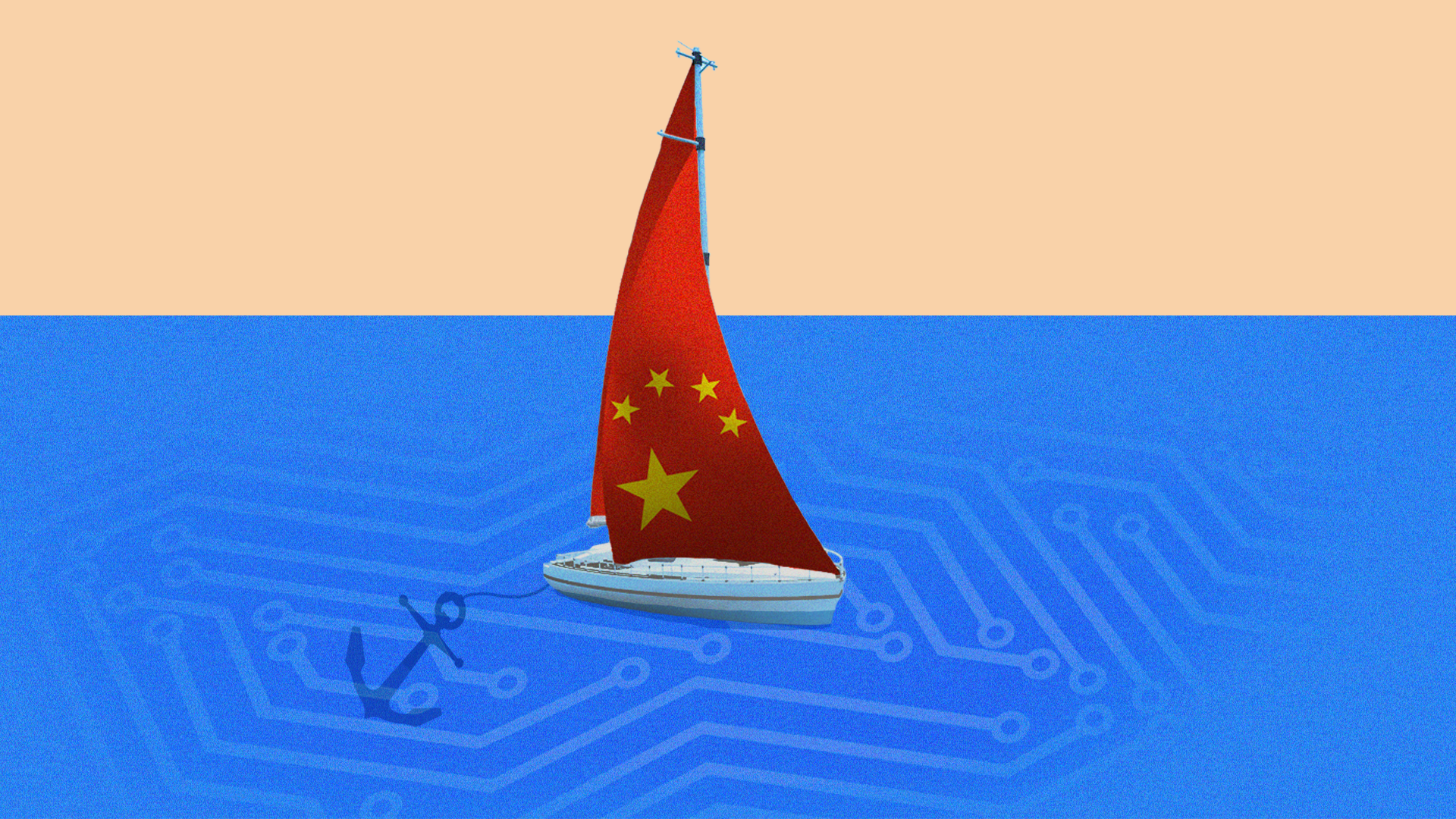A debate on the U.S.-China AI war
Add Axios as your preferred source to
see more of our stories on Google.

Illustration: Sarah Grillo/Axios
We reported last week that, against the prevailing narrative that China has more or less already won the artificial intelligence race, some experts say there is still very much a contest: While China and its companies are spending a lot of money to dominate AI, we reported, they continue to be held back by intellectual inflexibility — they cannot or will not pivot as quickly as western researchers, and may be fated always to be behind.
Some FoW readers pushed back. Read on for their view
Their take is that China is either already in or on its way to the catbird seat when it comes to AI. "We do have sustainable differentiation, but China learns fast," Bart Riley, an advanced battery expert, told me.
I called around for more of this side of the debate.
- Carnegie Mellon's Andrew Moore, also quoted in the previous post, told me that AI is moving along two tracks — research and development. And, if the aim ultimately is to be the greatest AI commercial gargantuan — to create the new Googles and Amazons, as discussed above — it is the latter category where focus is important.
Even if AI researchers make no further major advances, they have accomplished enough already "for hundreds or thousands of important applications of AI," Moore said. "There is plenty of new technology waiting for someone to get around and implement." These are in health care, education, self-driving and more, any of "which can have major economic impact." "What is blocking you is access to trained people. This is where China is in good shape." MooreMoore's big estimate: China is graduating about 50,000 new AI experts every year, about ten times the U.S. number.
- Similarly, Hector Abruña, a professor and battery researcher at Cornell University, said the time is over when China's best students go to the U.S. to study and stay to live there. They still go to top U.S. universities for the cachet, but then many go back and work in leading labs at home. That has created "a dramatic turnaround" in terms of the quality of Chinese science, he told Axios.
The Chinese used to produce a lot of papers and patents that were notable mostly for their sheer quantity, Abruña said. "Not any more," he said. "They are publishing at the very best places, with very high quality work." And a new crop of Chinese researchers "straddles both cultures," he said. "That makes them dangerous. They are really pushing the envelope.
- In a report today, the United Nations said that China has moved ahead of Japan as the second-biggest source of applications for international patents, Reuters reports.
